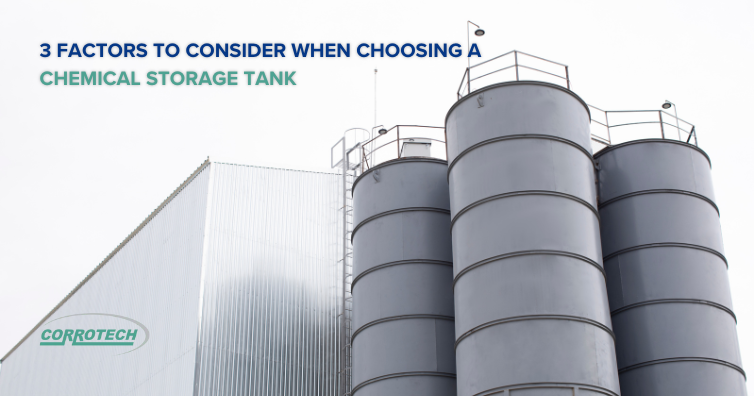
We understand the importance of safe and efficient chemical storage. The right Chemical Storage Tank is a crucial element for any facility that handles hazardous materials. It ensures the protection of your employees, the environment, and your investment.
This blog post dives into three key factors you should consider when choosing a chemical storage tank:
- Chemical Compatibility
- Tank Design and Construction
- Environmental and Regulatory Compliance
By understanding these factors, you can select the ideal tank that meets your specific needs and adheres to safety regulations.
The Importance of Chemical Storage Tanks
Chemical storage tanks are essential for a variety of industries, including:
- Chemical manufacturing
- Pharmaceuticals
- Food and beverage processing
- Oil and gas
- Water treatment
These tanks safely hold a wide range of chemicals, from flammable liquids to corrosive acids. They prevent spills, leaks, and the release of harmful fumes, protecting personnel, the environment, and surrounding property.
Factors to Consider When Choosing a Chemical Storage Tank
Here are the three key factors to consider when selecting a chemical storage tank:
- Chemical Compatibility
The primary factor is ensuring the tank’s material is compatible with the chemicals you plan to store. Different chemicals have varying properties, and some can react with certain tank materials, leading to leaks, corrosion, or even explosions.
- Identify the Chemicals: First, determine the specific chemicals you will be storing. This includes their names, Safety Data Sheets (SDS), and any unique properties.
- Material Selection: Based on the chemicals, research compatible tank materials. Common materials include high-density polyethylene (HDPE), stainless steel, and fiberglass reinforced plastic (FRP). Each offers different benefits and drawbacks. For instance, HDPE is excellent for many acids and bases, while stainless steel is ideal for highly corrosive chemicals.
- Consult Experts: Don’t hesitate to consult with Our team of experts. We can help you choose the right material based on your specific chemical needs and recommend tanks with appropriate ratings and certifications.
- Tank Design and Construction
The design and construction of the tank play a vital role in its functionality and safety.
Below are several crucial factors to contemplate:
- Size and Capacity: Choose a tank with sufficient capacity to meet your current and future storage requirements. Consider factors like anticipated growth and seasonal fluctuations. Arvind Corrotech offers a wide range of tank sizes to suit your specific needs.
- Tank Type: There are various tank designs available, each with its own advantages. For example, vertical tanks are space-saving, while horizontal tanks are better suited for situations requiring easy access.
- Secondary Containment: Secondary containment systems like bund walls or spill trays provide an extra layer of protection in case of leaks or spills. This can be crucial for highly hazardous chemicals.
- Safety Features: Look for tanks equipped with safety features like pressure relief valves, level gauges, and ventilation systems. These functionalities aid in accident prevention and guarantee safe operation.
- Environmental and Regulatory Compliance
Chemical storage comes with a responsibility to adhere to environmental regulations.
Here’s what to consider:
- Regulations: Familiarize yourself with the environmental regulations set forth by local and national authorities. These regulations may dictate specific tank materials, construction standards, and spill prevention measures.
- Permits: Depending on the chemicals and tank size, you may need to obtain permits for storage and operation. Consulting with Us can help you navigate the permitting process.
- Environmental Impact: Minimize the environmental impact by choosing tanks with features like leak detection systems and double-walled construction.
Conclusion
Choosing the right chemical storage tank is essential for ensuring the safety, integrity, and compliance of industrial operations involving hazardous substances. We understand the critical role that chemical storage tanks play in safeguarding personnel, protecting the environment, and maintaining regulatory compliance. By considering factors such as chemical compatibility, tank design and construction, and environmental and regulatory compliance, businesses can make informed decisions and select the most suitable storage solutions for their specific needs. With our comprehensive range of high-quality chemical storage tanks and expertise in corrosion-resistant materials, we are committed to providing our customers with reliable and efficient storage solutions that meet the highest standards of safety and performance. Choose Arvind Corrotech for your chemical storage needs and invest in quality, reliability, and peace of mind.

